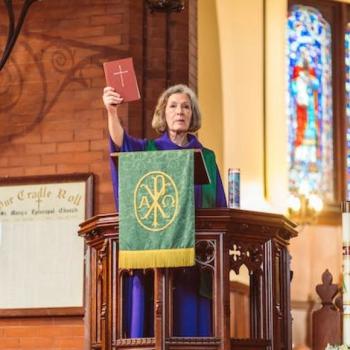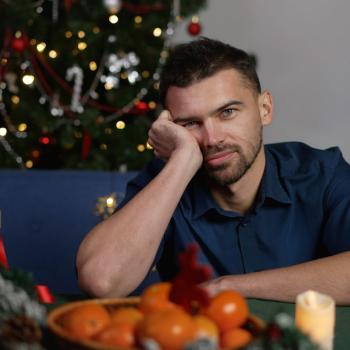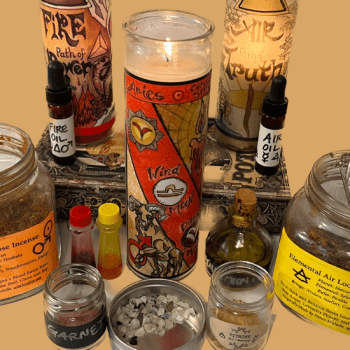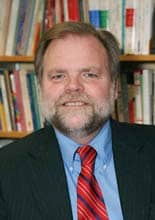Editor's Note: This article is part of the symposium, "What Is Progressive Christianity?" presented by the newly launched Patheos Progressive Christian Portal and in partnership with the Wild Goose Festival (June 23-26). Like us on Facebook to receive today's best commentary on Progressive Christianity.
Many people who call themselves Progressive Christians must have been surprised by this comment in a recent article by Fred Schmidt:
"Progressive" Christians have yet to articulate in theological categories what they believe in, so it is hard to identify what they believe out—except by resorting to political assumptions. . . . If all that Progressive Christianity has going for it is that it is politically progressive, then there is really no reason to wrap churchy language around it.
Many of us have been writing and teaching Progressive theology and spirituality for years and have framed robust Christian visions of reality along with practices that deepen our vision and sense of mission. We can cite the work of The Center for Progressive Christianity, the writings of Marcus Borg, Eric Elnes, Diana Butler Bass, and process theologians such as John Cobb, Jay McDaniel, Catherine Keller, Marjorie Suchocki, Rita Nakashima Brock, Clark Williamson, and myself, to name a few.
Perhaps, our progressive nature has kept us from making universal statements applicable to all people. Further, humbled by the immensity and variety of the universe, we may not always be bold enough in our preaching and proclamation. In light of the critique of Fred Schmidt, whose work I greatly admire, Progressives need to be more explicit in sharing the good news of Progressive theology and spirituality as essential to their political and social positions.
Being a Progressive Christian is as much a way of being as it is a vision of reality. For me, Progressive theology builds on, but goes beyond, 19th- and 20th-century Christian liberalism. Progressive theology seeks to go beyond the polarization and dualistic thinking of modernity that often shaped liberalism in quest of more holistic ways of experiencing the world and sharing the good news of God's healing and transforming presence in Jesus of Nazareth the Christ. Over the next few weeks, I will reflect on Progressive Christianity as it relates to questions of authority, scripture, and diversity in Christianity and other religious traditions. But today, I want to reflect a bit on the progressive spirit and progressive affirmations of faith.
Progressive theology is holistic theology. It sees mind and body, science and religion, scripture and experience, faith and medicine, and contemplation and action as interdependent rather than opposed to each other. It affirms mystical and healing experiences in scripture and personal experience. Progressive theology transcends liberalism's and fundamentalism's supernatural-natural dualism by affirming that there is more to "nature" and to causal relationships than meets the eye.
Mind-body-spirit (complementary or holistic) medicine shows us that our thoughts, images, and emotions can transform our cells as well as our souls. Further, the ability of energy work (acupuncture, reiki, and other forms of healing touch), meditative practices, and intercessory prayer to shape persons' experiences and wellbeing at a distance or through physical touch has been confirmed by many medical studies. We live in a complex, energetic, and interdependent world that opens the door to new, creative, and practical understandings of Jesus' healing ministry, then and now.
Progressive theology's holism can be described as "big tent" but, in the spirit of one of my teachers, Bernard Loomer, I would describe it as theology with "size" or "stature." Unlike much of old-line liberalism and conservatism, the progressive spirit looks for common ground and anticipates diverse visions of the truth. Progressive Christianity can move from "opposition" to "contrast" in responding to diverse theological positions and spiritual practices, embracing their truths while critically approaching places of disagreement.
For example, fundamentalists can show us the importance of the quest for certainty and reveal our own spiritual comfort zones; evangelicals remind us of the centrality of Jesus and the power that comes from having a living relationship with the Risen Christ; Pentecostals invite us to experience ecstatic spirit-centered faith; Quakers awaken us to God's voice in silence. Little is accomplished by theological denunciation. Much is gained by awakening to holiness wherever it is found.





